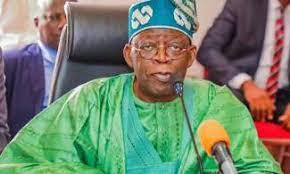The Human Rights Writers Association of Nigeria (HURIWA) has challenged the Minister of Finance, Zainab Shamsuna Ahmed, to tell Nigerians why the Muhammdu Buhari-led administration can’t stop borrowing.
HURIWA handed down the charge in a press statement by its national coordinator, Comrade Emmanuel Onwuboko, and
director, National Media Affairs, Miss. Zainab Yusuf, Monday in Abuja.
HURIWA juxtaposed the revenues claimed to have been generated officially by the Federal Inland Revenue Services (FIRS) and the budgets of the federation on infrastructure of roads, water, education and health vis-à-vis the rationale for the continuous borrowings by the federal government.
“We demand that the federal ministers in charge of finance should explain the rationale for the continuous borrowings and where these revenues officially generated by the FIRS in the last five years went to and what they were used for? Nigerians need to know.
“Since 2016, Nigeria has continued to provide expansionist budgets, with its budget having risen from the N4 trillion mark in early 2010s to above 6tn since 2016.
“While there have been significant improvements in the Company Income Tax, Value Added Tax, Customs and other revenue lines, the federal government of Nigeria has resorted to large unfunded deficit through large borrowings, which has raised its debt on a continuous trajectory.
“A statement from the FIRS revealed that in the first quarter 2020, the agency recorded N1.12 trillion revenue up from N1.04 trillion recorded in the first quarter of 2019 as a show of commitment towards achieving its N8.5 trillion revenue target for the year, in spite of turbulence in the global economic system, especially the sharp fall in the price of Nigeria’s major export and top earner crude oil.
“A breakdown of collections for period under review shows that Capital Gains Tax soared 568 percent from N96, 408,740.90 in the first quarter of 2019 to N643, 935,849.06 in the first quarter of 2020.”
HURIWA further stated that, “A study conducted by experts on Nigeria’s infrastructure requirement revealed that for the country to bridge the wide infrastructure gap, approximately N11.25 trillion ($31 billion) has to be invested annually over a period of 10 years.”
The association noted that key sectors such as industry, trade and investment, education, healthcare, labour and employment, power, works and housing, and transportation were catalysts for growth and queried that with the budgetary allocation of political officials and some low impact sectors almost four times that of key sectors, is Nigeria growth inclined?
HURIWA further stated that, “Federal government of Nigeria has said that it would finance the N5.36 trillion budget deficits through domestic, foreign loans and proceeds from privatisation. It is not good to keep on borrowing on a yearly basis to finance deficit budget when a lot of very valuable national assets are lying fallow and moribund.”




